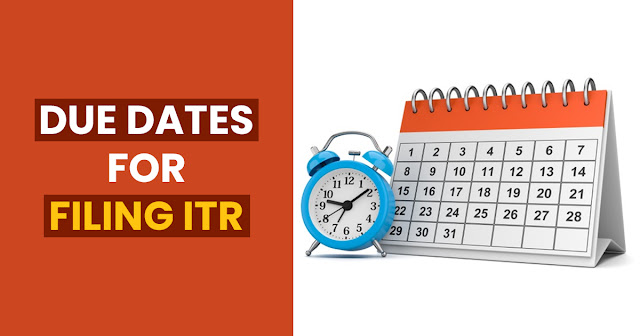Did you furnish the income tax return ITR in FY 2019-20? If not then December 31 is the last date for filing the same. The Income-tax department has again prolonged the last date to file the ITR so as for a simpler filing procedure for the taxpayer seeking the pandemic. It means that the people have the time till the finish of this year to furnish their return on the earned income between April 1, 2019, and March 31, 2020, rather than November 30. July 31 is the due date for filing the ITR for all the taxpayers whose accounts are not needed to be audited.
Income Tax Return (ITR) Filing: Important Dates At A Glance
- The prolongation of the date is for the sake of the assessee that there will be more and more time given to them so that they can furnish their due ITR as per the Central Board of Direct Taxes (CBDT), the highest policy body made by the income tax department.
- January 31, 2020, is the prolonged date to file the ITR for the assessee whose accounts need to be investigated by the audited team.
- January 31, 2021, is the prolonged date to file for several audit reports beneath the act which consist of the income tax audit reports and report with respect to international/specified domestic transactions.
- December 31, 2020, is the proposed date for filing several audit reports beneath the act which consists of a tax audit report and report in regard to international/specified domestic transaction.
- The income tax department indeed prolonged the last date for small assessees or for the people whose tax liability with Rs 1 lakh relied on the self-examination till January 31, 2021. In June the last date for furnishing for self-assessment taxes if the liabilities gets prolonged for more than ₹ 1 lakh to give exemption to small and middle-class assessee. The last date of November 30 was settled for the event by doing or not doing the audit.


Comments
Post a Comment